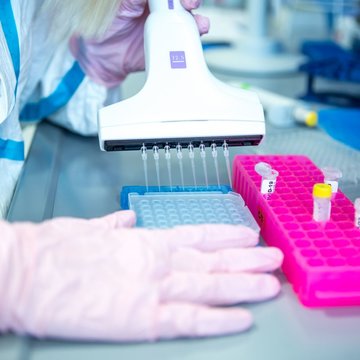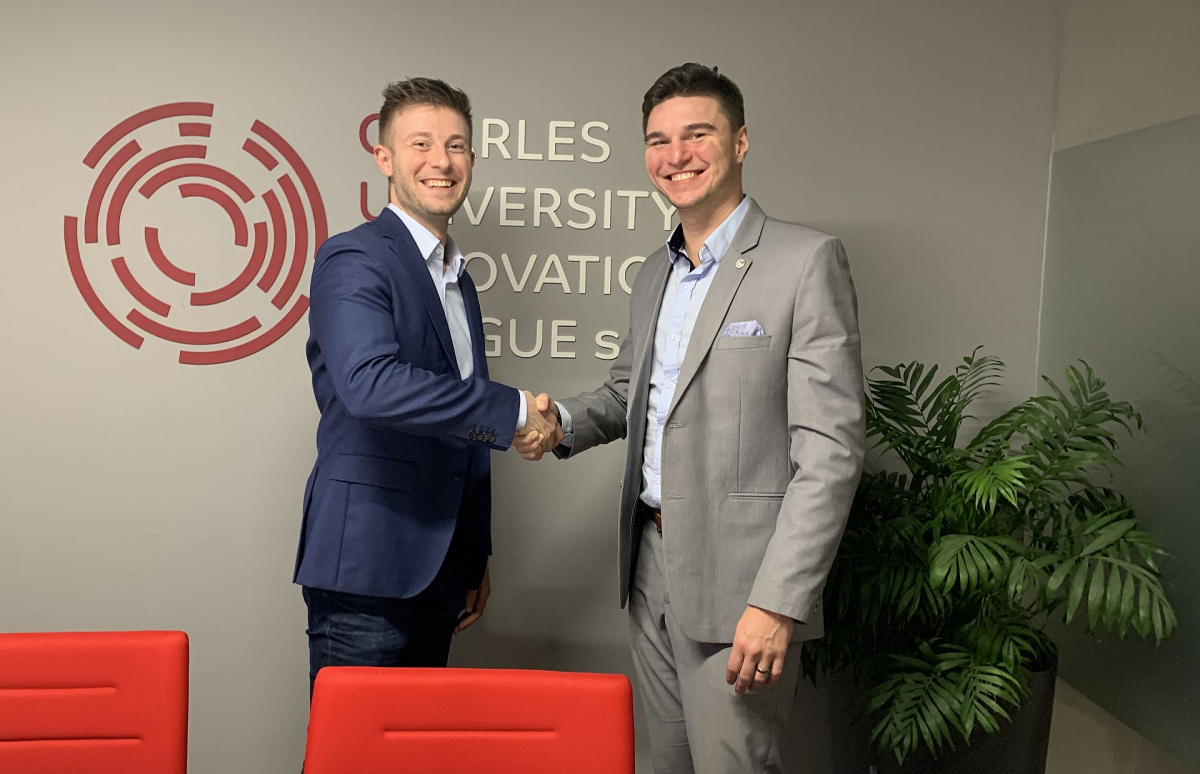
BIOCEV scientists have developed and patented a inhalation substance that could be effective against COVID-19 and its mutations
This agent should primarily be indicated for patients with a severe course of COVID-19 (SARS-CoV-2) or other serious respiratory diseases. Its discovery was made by a trio of scientists from Charles University and the BIOCEV research centre - Karel Smetana, Jan Brábek and Milan Jakubek. Thanks to the cooperation with Thomayer University Hospital and the company Oxygen Biotech, clinical trials and negotiations with foreign partners are now underway.
The active substance belongs to simple molecules working on the principle of blocking interleukin-6 (IL-6), a protein molecule involved in the regulation of the immune response. IL-6 promotes, among other things, the onset and development of inflammation.
The importance of IL-6 for inflammation and tumour progression has been studied for more than ten years by the team of Professor Karel Smetana Jr. (1st Faculty of Medicine, Charles University - BIOCEV), in close collaboration with the team of Professor Jan Brábek (Faculty of Natural Science, Charles University - BIOCEV), who came up with the idea of using this substance to combat COVID-19.
"IL-6 is a key interleukin for the invasiveness of cancer cells, but also for the cytokine storm in some serious viral infections, including COVID-19," said Prof. Jan Brábek, adding that the active substance should therefore prevent the fatal complications of COVID-19 such as acute respiratory distress syndrome, which is associated with most deaths.
Milan Jakubek from the Laboratory of Medicinal Chemistry (1st Faculty of Medicine, Charles University - BIOCEV) subsequently created a new soluble formulation, necessary for inhalation administration. This should allow to treat directly the most affected lungs of patients. He was the first scientist in the world to do so - until then, only the solid dosage form was known.
The originators of the patent are scientific representatives of the Faculty of Natural Science of Charles University and the 1st Faculty of Medicine of Charles University. According to them, in the future it is possible to consider extending the scope of the substance to the field of neurodegenerative diseases (Parkinson's, Alzheimer's disease), some non-infectious diffuse lung processes (progressive pulmonary fibrosis of various origins, sarcoidosis) or specific types of tumours.

Professor Martina Koziar Vašáková from the Department of Pneumology, 1st Faculty of Medicine, Charles University and Thomayer University Hospital, assumes that a number of lung tissue injuries from various causes (viruses, bacteria, toxic substances, drugs) can lead to uniform diffuse lung damage, similar to COVID-19.
"Different causes can therefore lead to similar inappropriate immune system responses and fatal consequences for lung tissue. An inhaled substance that generally suppresses this immune system hyperreactivity could therefore have a positive effect not only on the fatal development of COVID-19, but also on other lung processes triggered by other infections or by physical or chemical damage," explains Professor Koziar Vašáková.
The biotechnological start-up company Oxygen Biotech in cooperatin with BIOCEV is in charge of further development and the financing of the clinical trial. At the end of October, BIOCEV scientists and company representatives attended an international scientific conference in the United Arab Emirates. As a result, a number of discussions on potential cooperation with foreign partners are being held.
"The market for COVID-19 (SARS-CoV-2) drugs and vaccines in the US and Europe is well saturated. However, there are regions that have experienced drug shortages during the pandemic, and this has had a severe health and socio-economic impact on their populations," says Jiri Niznansky, co-founder of Oxygen Biotech. These regions are the focus of our company.
"At the same time, we are discovering the potential for treating post-covid syndrome, which according to the WHO threatens up to 125 million people worldwide. If we succeed, we could offer a drug not only for severe cases of COVID-19, but also for the treatment of the consequences of this disease," adds Jiří Nižňanský.
